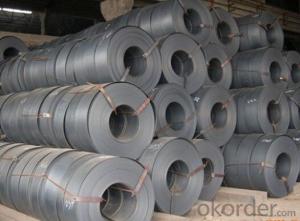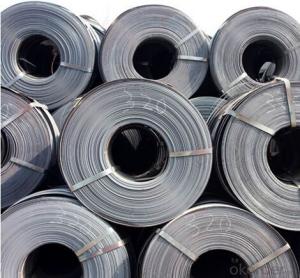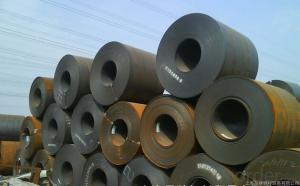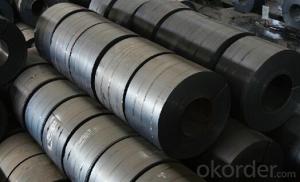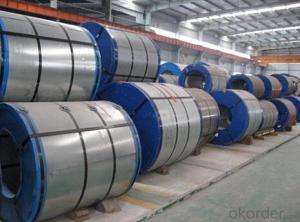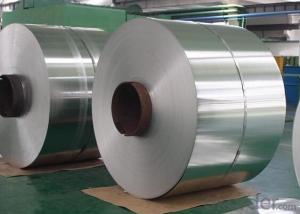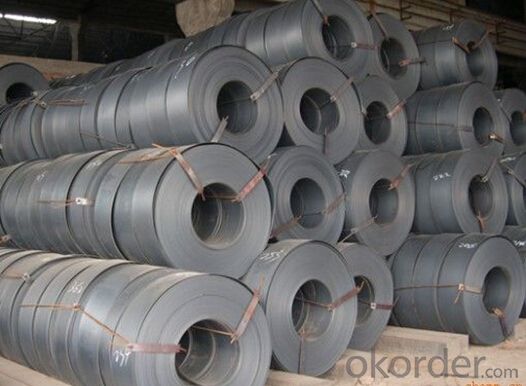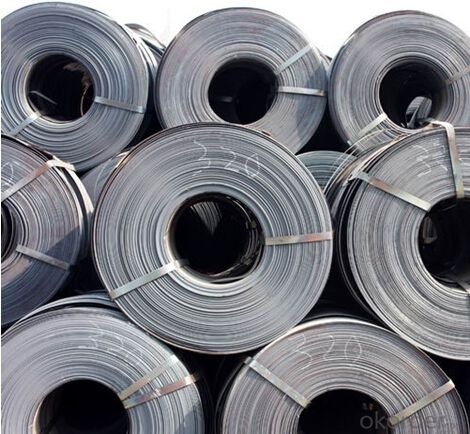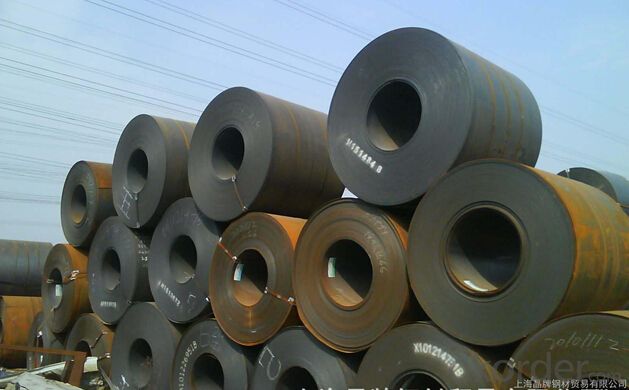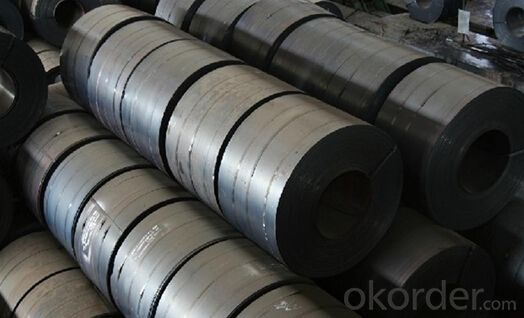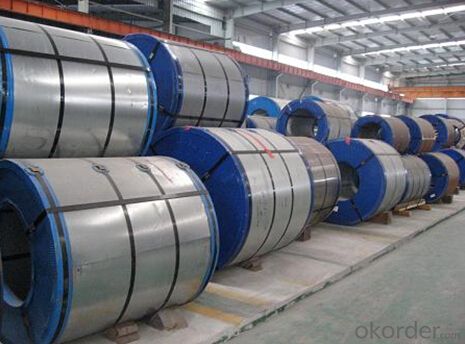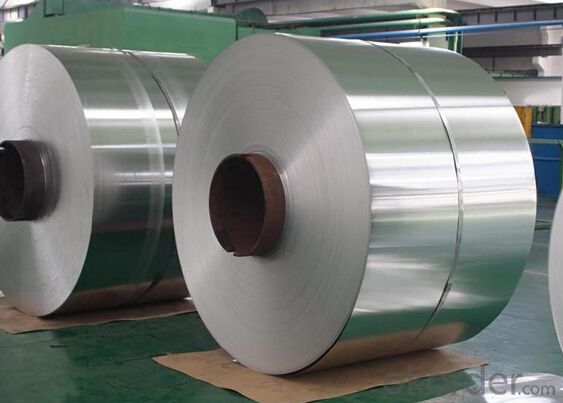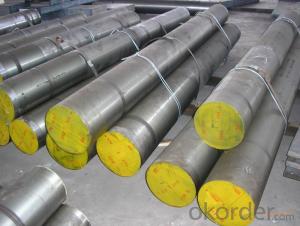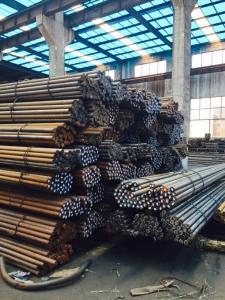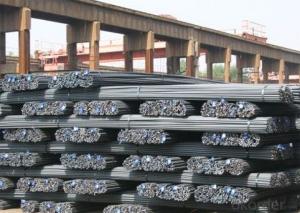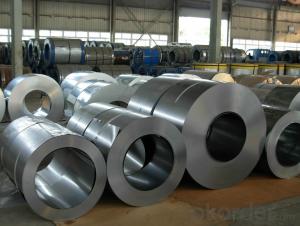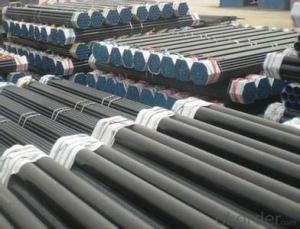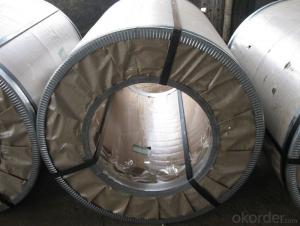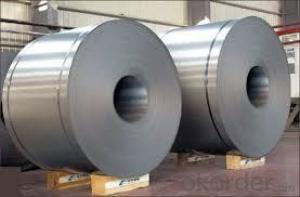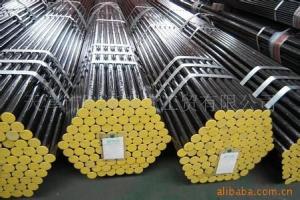Grade Q345 HR Steel Coil with High Quality and Low Price
- Loading Port:
- Tianjin
- Payment Terms:
- TT OR LC
- Min Order Qty:
- 25 m.t.
- Supply Capability:
- 10000 m.t./month
OKorder Service Pledge
OKorder Financial Service
You Might Also Like
Specification
Grade Q345 HR Steel Coil with High Quality and Low Price
Quick Details
Name | Hot Rolled Steel Coil |
Standard | GB/ASTM/SAE/AISI/DIN/JIS/EN/BS |
Surface Treatment: | Black/Peeling/Polished/Machined |
Delivery Condition: | Hot Rolled or Forged/Peeled or Black Surface |
Test | SGS/UT 100% Elements Testing |
Certificate: | ISO/Mill Certificate |
Service: | 24 hours online service / |
more than 20 years trading and manufacture | |
Quality Assurance: | the third party inspection, such as SGS, BV, TUV…etc. is acceptable |
Packaging Details: | Seaworthy Packaging or as per customer's packing instruction |
Specification
Commodity | Hot rolled steel plate/Mild steel plate/black steel plate/Carbon steel plate/sheet |
STEEL GRADE | A36, AH36,A283 Gr.C, SS400, S235J1/S235J2/S235JR, S275J1/S275J2/S275JR, A516 Gr.60/A516 Gr.70, ST37-2 |
Standard | GB,JIS,DIN,AISI,ASTM |
Thickness | 1.5mm ~ 200mm |
Width | 1000mm 1220mm 1250mm 1500mm 2000mm 2500mm 3000mm |
length | below 12000mm & coil |
Surface | Clean, blasting and painting according to customer requirement |
Delivery time | standard size 15days goods can load into container, if produce goods need 35days |
Application | Widely used in petrochemistry,chemistry,electricity,boiler and vessel manufacture,and could |
be made into reactor,heat exchange facility,segregator,sphere vessel,oil tank,liquid gas storage | |
tank,nuclear reactor press shell,turbine and other machines | |
Shipping | length below 5.8m with 20' container, length below 11.8m with 40' container. or Bulk shipping. |
Company Information
CNBM International Corporation is the most import and export platform of CNBM group(China National Building Material Group Corporation) ,which is a state-owned enterprise, ranked in 270th of Fortune Global 500 in 2015.
With its advantages, CNBM International are mainly concentrate on Cement, Glass, Iron and Steel, Ceramics industries and devotes herself for supplying high quality series of refractories as well as technical consultancies and logistics solution.
After-sale service | l CNBM provides the services and support you need for every step of our cooperation. We’re the business partners you can trust; you can relax and get on with doing business. |
l For any problem, please kindly contact us at any your convenient time, we’ll reply you in our first priority within 24 hours | |
Advantages | Industry experience over 20 years. |
Shipment of goods -More than 70 countries worldwide. | |
The most convenient transport and prompt delivery. | |
Competitive price with best service. | |
High technical production line with top quality products. | |
High reputation based on best quality products. |
Product Show
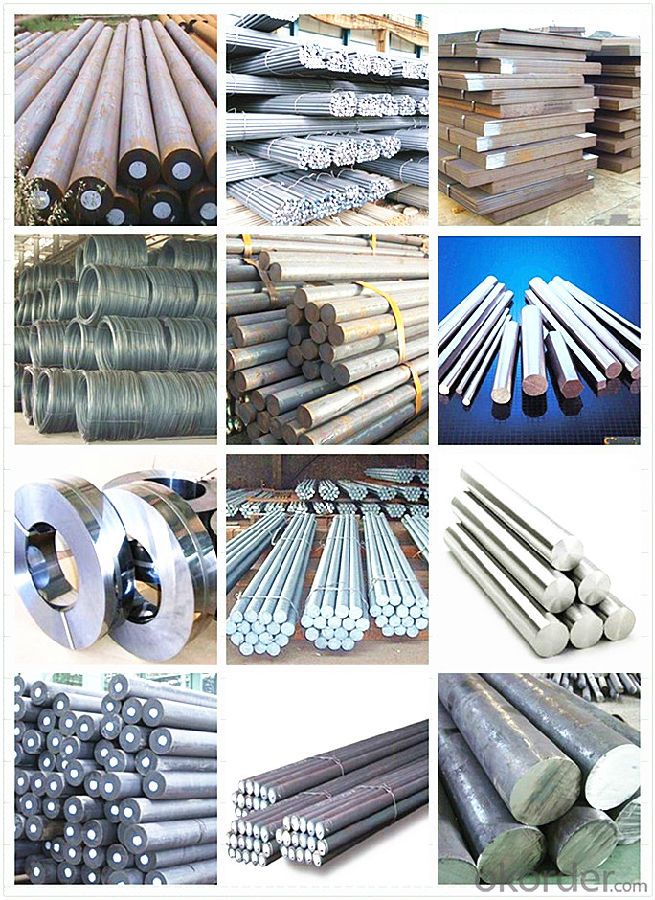
FAQ
Are you a trading company or manufacturer? | Manufacturer |
What’s the MOQ? | 3 metric ton |
What’s your delivery time? | 15-35 days after downpayment received |
Do you Accept OEM service? | Yes |
what’s your delivery terms? | FOB/CFR/CIF |
What's the Payment Terms? | 30% as deposit,70% before shipment by T/T |
Western Union acceptable for small amount. | |
L/C acceptable for large amount. | |
Scrow ,Paybal,Alipay are also ok | |
Why choose us? | Chose happens because of quality, then price, We can give you both. |
Additionally, we can also offer professional products inquiry, products knowledge train (for agents), smooth goods delivery, excellent customer solution proposals. | |
What's your available port of Shipment? | Main Port, China |
What’s your featured services? | Our service formula: good quality+ good price+ good service=customer's trust |
Where are your Market? | Covering more than 160 countries in the world |
- Q: How is stainless tool steel used in the manufacturing of surgical instruments?
- Stainless tool steel is commonly used in the manufacturing of surgical instruments due to its desirable properties such as high corrosion resistance, durability, and ease of sterilization. It provides the necessary strength and precision required for surgical tools, ensuring their longevity and performance in various medical procedures. Additionally, stainless tool steel can withstand repeated exposure to sterilization methods like autoclaving, making it a reliable choice for surgical instrument manufacturing.
- Q: What are the applications of special steel in the defense sector?
- Special steel, which is also referred to as high-strength or high-performance steel, has a wide range of uses in the defense sector due to its distinct properties and capabilities. The utilization of special steel in the defense sector can be categorized into different areas: 1. Armor and ballistic protection: In the production of armored vehicles, tanks, and personnel carriers, special steel is extensively employed. Its exceptional strength and hardness make it an optimal material for safeguarding against ballistic threats like bullets, fragments, and explosives. Special steel plates reinforce the structure and provide penetration resistance. 2. Ammunition and weapon components: Various weapon components, such as barrels, bolts, and receivers, are manufactured using special steel. Its remarkable strength, durability, and resistance to wear and corrosion make it suitable for producing firearms and ammunition. Special steel alloys can endure the high temperatures and pressure generated during firing, ensuring dependable performance and durability of weapons. 3. Aircraft and aerospace components: Special steel is employed in the construction of aircraft and aerospace components like landing gears, engine parts, and structural elements. Its high strength-to-weight ratio allows for the production of lightweight yet sturdy components, enhancing the overall performance and safety of military aircraft. Special steel alloys also exhibit excellent fatigue resistance and can withstand high-temperature environments, making them suitable for demanding aerospace applications. 4. Naval applications: Special steel plays a vital role in the naval applications of the defense sector, including the construction of warships, submarines, and naval vessels. Its corrosion resistance, high strength, and toughness make it an ideal material for shipbuilding, ensuring the longevity and structural integrity of naval platforms. Special steel is also used in critical components like propeller shafts, hulls, and others that require exceptional strength and resistance to harsh marine environments. 5. Missiles and rocketry: Special steel is used in the manufacturing of missiles, rockets, and their propulsion systems. Its ability to withstand high temperatures, strength, and resistance to extreme forces make it suitable for producing critical components like rocket nozzles and motor casings. Special steel alloys can endure the intense heat and pressure generated during rocket propulsion, ensuring reliable and efficient performance. In conclusion, the applications of special steel in the defense sector are extensive and diverse. Its unique properties and capabilities contribute significantly to the development of robust, reliable, and high-performance defense systems, ensuring the safety and security of military personnel and assets.
- Q: How is heat-resistant steel used in high-temperature applications?
- Heat-resistant steel is used in high-temperature applications due to its ability to withstand elevated temperatures without losing its structural integrity. This type of steel is commonly used in industries such as aerospace, power generation, and petrochemicals, where it is essential to maintain the strength and performance of components exposed to extreme heat. Heat-resistant steel is used in the construction of furnaces, boilers, heat exchangers, and other equipment that operate under high temperatures, ensuring their reliability and longevity even in challenging environments.
- Q: What are the main applications of special steel in the chemical processing industry?
- Special steel is widely used in the chemical processing industry due to its unique properties and capabilities. Some of the main applications of special steel in this industry include the manufacturing of storage tanks, pipelines, and reactors. Special steel is resistant to corrosion, high temperatures, and chemical reactions, making it ideal for handling and storing various chemicals and substances. Additionally, special steel is also utilized in the construction of equipment used in the separation, purification, and filtration processes in chemical plants. Overall, the main applications of special steel in the chemical processing industry revolve around its durability, resistance to corrosion, and ability to withstand harsh chemical environments.
- Q: How does special steel contribute to the corrosion resistance of products?
- By incorporating specific alloying elements, special steel enhances its ability to withstand corrosion and contributes to the corrosion resistance of products. These alloying elements, such as chromium and nickel, create a protective layer known as a passive film on the steel's surface. This passive film acts as a barrier, preventing the penetration of oxygen and moisture to the underlying metal, thus reducing the chances of corrosion. Special steel contains high levels of chromium, which enables the formation of a dense and stable chromium oxide layer on the surface. This layer acts as a physical barrier, preventing the diffusion of corrosive agents and inhibiting rust formation. Additionally, the presence of nickel in the alloy further improves the steel's corrosion resistance by promoting the formation of a more uniform and adherent passive film. Furthermore, special steel can undergo specific treatments or processes to enhance its corrosion resistance. Techniques like heat treatment and surface coating can modify the steel's structure and composition, facilitating the formation of more stable passive films and reducing susceptibility to corrosion. These treatments also improve the steel's mechanical properties, making it more durable and resistant to external factors that may lead to corrosion. In conclusion, the utilization of special steel in various products enhances their resistance to corrosion through the incorporation of alloying elements and the application of specific treatments that encourage the formation of protective passive films. This, in turn, extends the lifespan of the products and ensures their performance and integrity, even in harsh and corrosive environments.
- Q: Can special steel be used for making electrical components?
- Yes, special steel can be used for making electrical components. Special steel refers to a group of steels with specific properties and characteristics that make them suitable for various applications, including electrical components. These steels are often engineered to have high electrical conductivity, low electrical resistance, good magnetic properties, and excellent heat resistance. They are typically used in electrical engineering applications where high performance and reliability are required, such as in the manufacturing of transformers, motors, generators, and electrical transmission systems. Special steel can also provide resistance to corrosion and high temperatures, which further enhances its suitability for electrical component manufacturing.
- Q: Can special steel be used for aerospace engine components?
- Yes, special steel can be used for aerospace engine components. Special steel is often preferred for its exceptional strength, heat resistance, and durability, making it suitable for the demanding conditions and high temperatures experienced in aerospace engines. Additionally, special steel alloys can be tailored to specific requirements, enabling engineers to optimize performance and enhance overall efficiency in aerospace applications.
- Q: What are the different methods of surface powder coating for special steel?
- There are several methods of surface powder coating that are commonly used for special steel. These methods include: 1. Electrostatic powder coating: This method involves applying an electric charge to the powder particles and then spraying them onto the steel surface. The charged particles are attracted to the grounded steel, resulting in a uniform and durable coating. 2. Fluidized bed powder coating: In this method, the steel is preheated and then dipped into a fluidized bed of powder particles. The heat causes the powder to melt and form a smooth coating on the steel surface. Excess powder is then removed by shaking or blowing air. 3. Flame spray powder coating: This method involves heating the powder particles using a flame and then spraying them onto the steel surface. The heat melts the powder, which then solidifies to form a coating. Flame spray powder coating is often used for larger steel structures or for repairing damaged coatings. 4. Thermal spray powder coating: This method uses a thermal spray gun to heat and propel the powder particles onto the steel surface. The high velocity of the particles ensures good adhesion and a dense coating. Thermal spray powder coating is often used for high-wear applications or in corrosive environments. 5. UV-cured powder coating: This method involves applying a UV-sensitive powder onto the steel surface and then exposing it to UV light. The UV light initiates a chemical reaction that causes the powder to cure and form a hard coating. UV-cured powder coating is known for its fast curing time and excellent resistance to chemicals and UV radiation. Each of these methods has its own advantages and considerations, and the choice of method will depend on factors such as the specific requirements of the steel surface, the desired coating thickness, and the production volume.
- Q: How does special steel contribute to the agriculture aftermarket industry?
- Special steel contributes to the agriculture aftermarket industry by offering enhanced durability, strength, and corrosion resistance, which are crucial for manufacturing agricultural machinery and equipment. It allows for the production of high-quality components that can withstand harsh farming conditions and heavy usage. Additionally, special steel enables the creation of innovative designs and improved performance, ultimately increasing productivity and efficiency in the agriculture sector.
- Q: How is special steel used in the manufacturing of industrial machinery?
- Special steel is used in the manufacturing of industrial machinery due to its exceptional properties such as high strength, durability, and resistance to corrosion. It is commonly utilized in components like gears, shafts, bearings, and tooling, as it can withstand heavy loads, high temperatures, and harsh working conditions. By using special steel, manufacturers can ensure the reliability and longevity of industrial machinery, enhancing overall performance and productivity.
Send your message to us
Grade Q345 HR Steel Coil with High Quality and Low Price
- Loading Port:
- Tianjin
- Payment Terms:
- TT OR LC
- Min Order Qty:
- 25 m.t.
- Supply Capability:
- 10000 m.t./month
OKorder Service Pledge
OKorder Financial Service
Similar products
Hot products
Hot Searches
Related keywords
